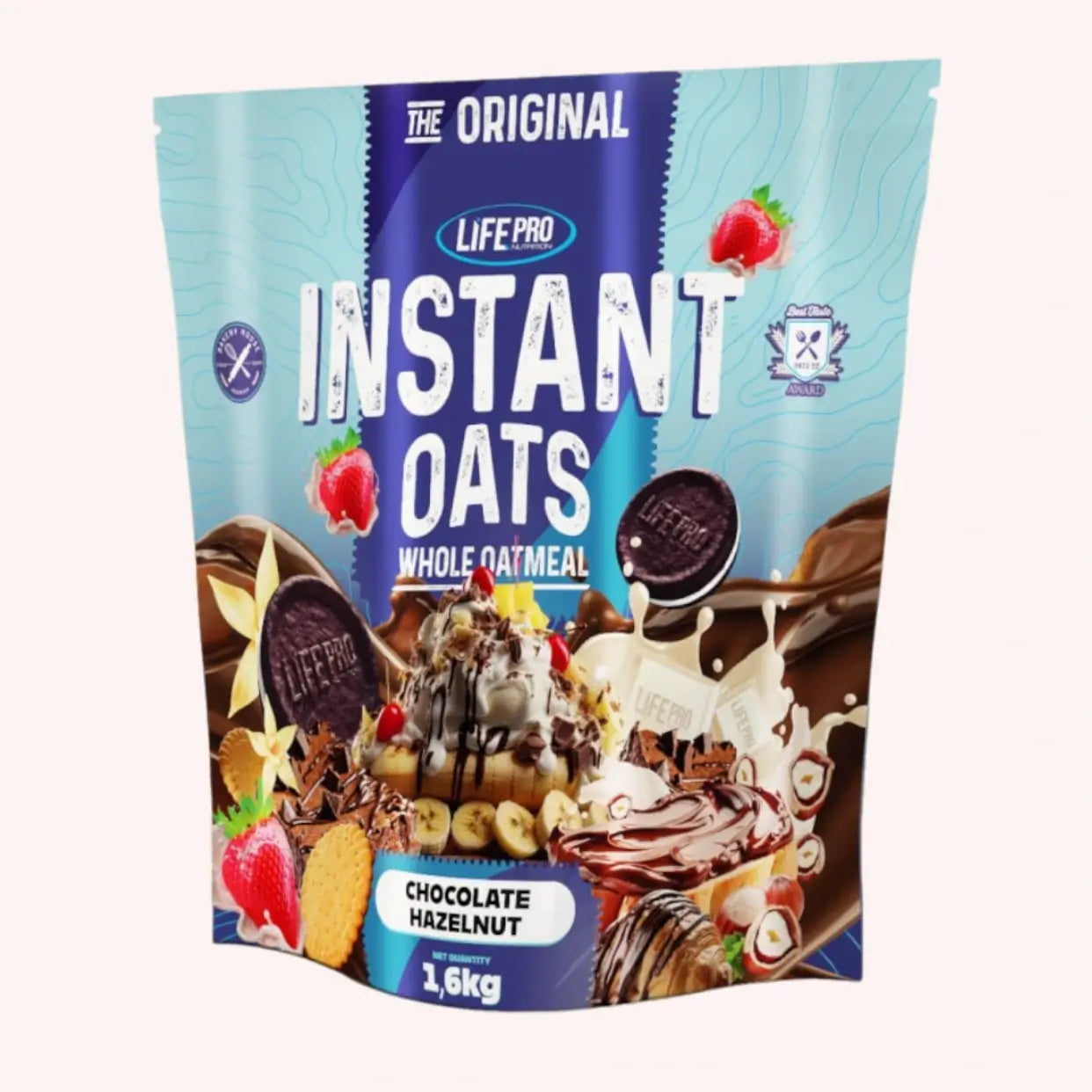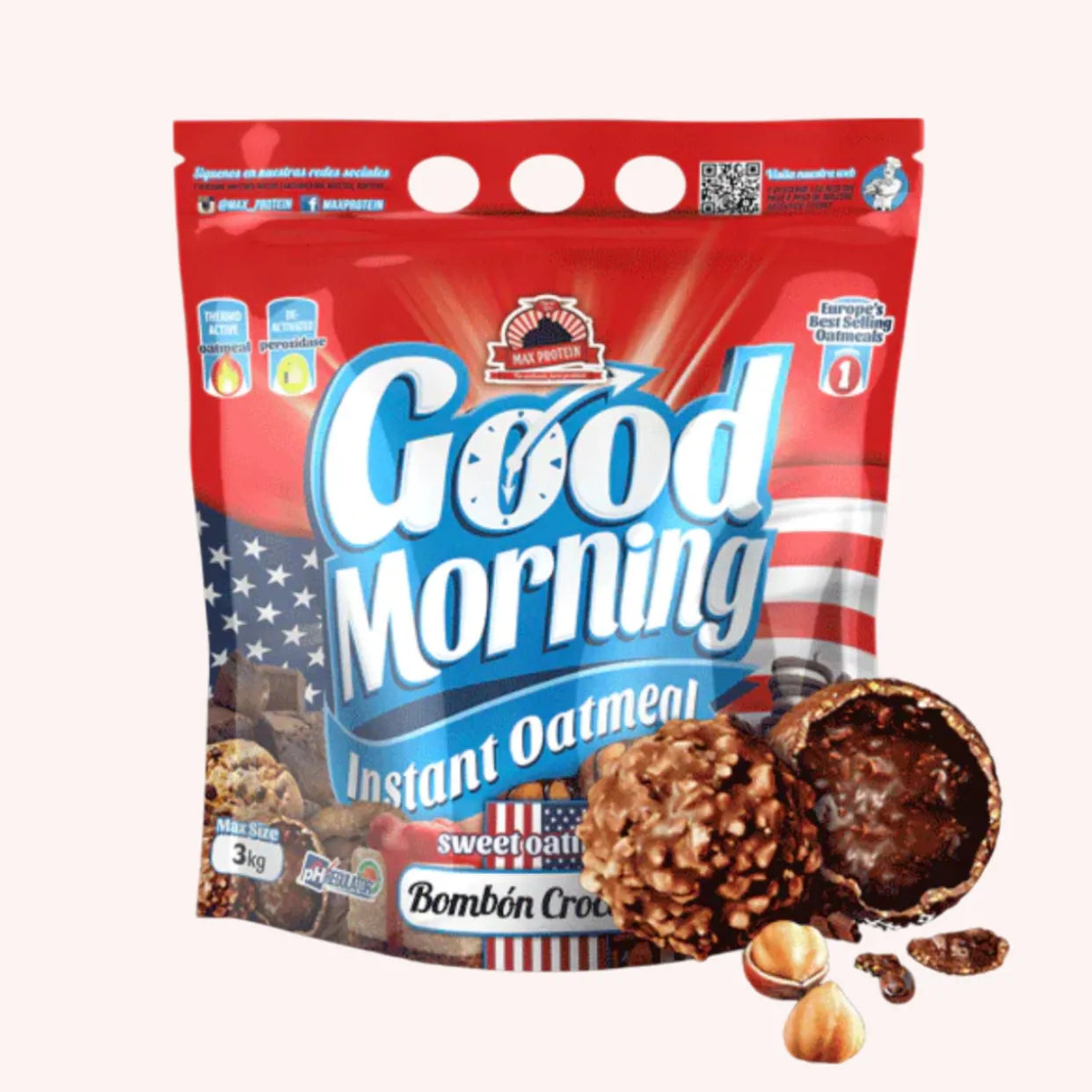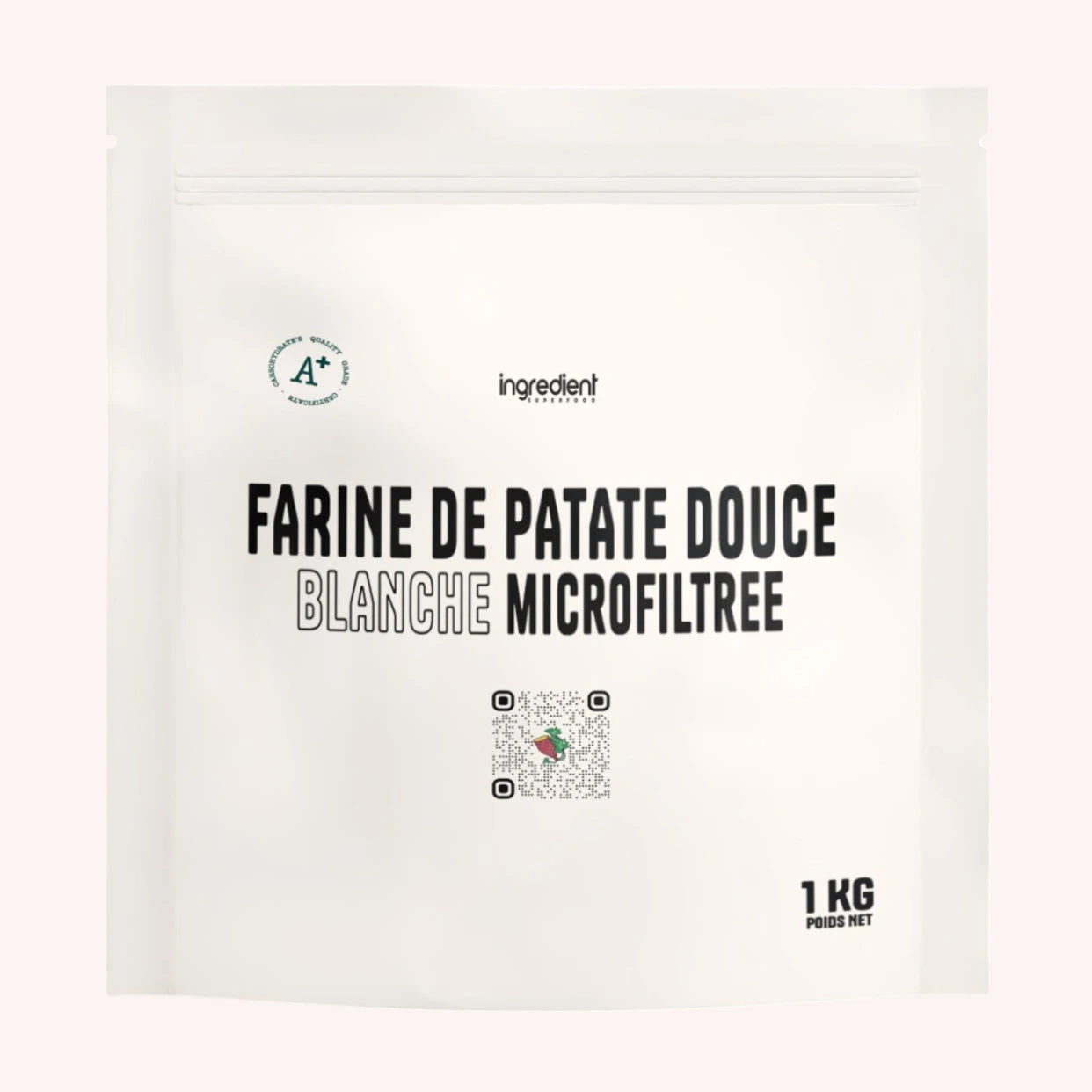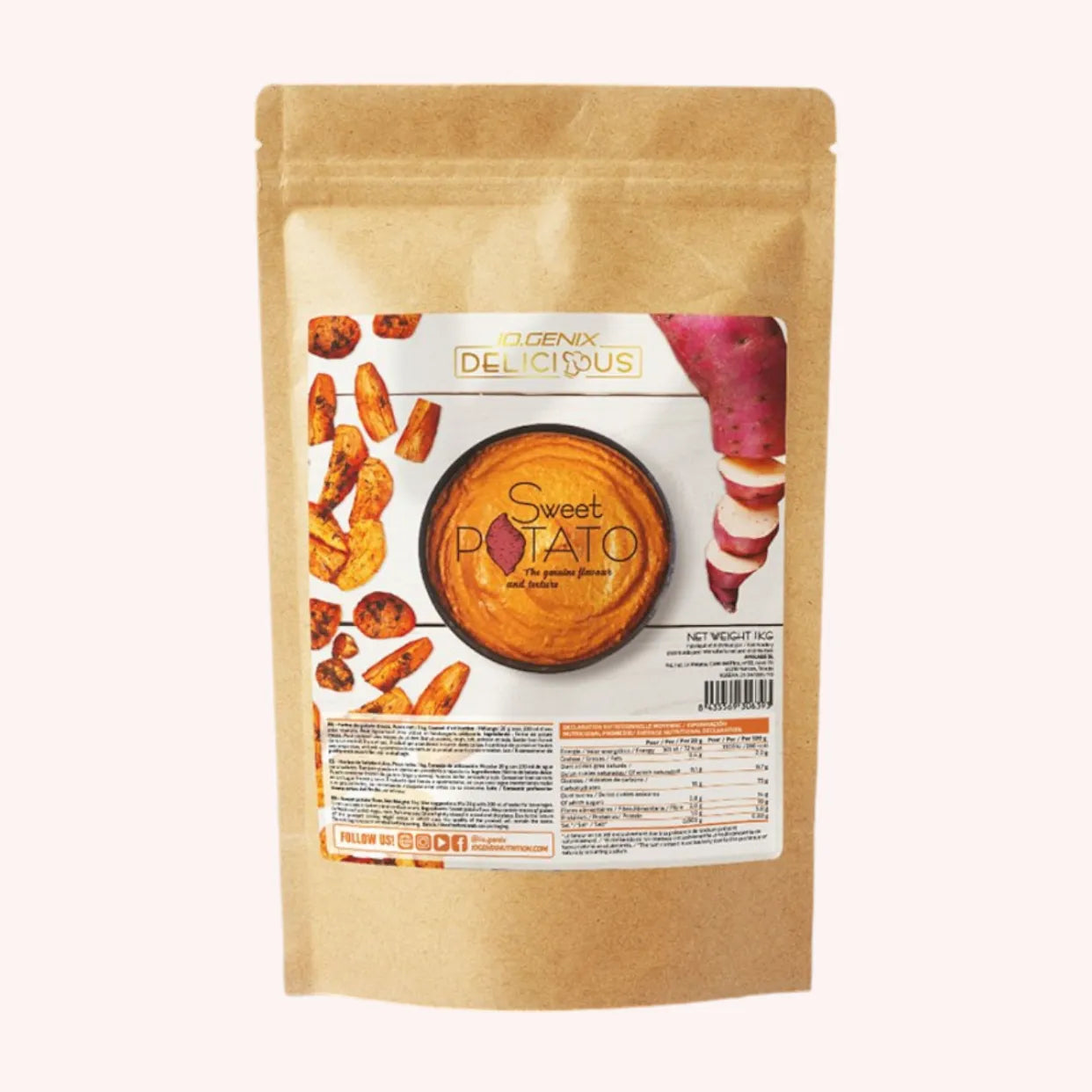Carbohydrates are central when it comes to bodybuilding, providing the energy you need to sustain heavy physical efforts and optimize your performance.
Their importance is often underestimated in favor of proteins, but it is fundamental to understand how carbohydrates promote muscle gain and improve recovery.
Here, we'll take a detailed look at the role of carbohydrates in bodybuilding, how they work, the best sources to prioritize, and the habits you need to establish to effectively integrate them into your nutrition program.
Carbohydrates: Essential fuel for physical effort
Carbohydrates, also called carbohydrates , are the main source of energy for the body, especially during intense physical exertion such as strength training. They are stored as glycogen in the muscles and liver, and are released as glucose into the blood to provide energy during workouts.
When you're training, glycogen is the primary source of energy your muscles use. Once your stores are depleted, performance declines and fatigue sets in quickly. That's why a diet rich in carbohydrates is essential to maintain good energy levels and avoid exhaustion.
How do carbohydrates support muscle mass gain?
In a bodybuilding context, carbohydrates play a fundamental role in the muscle building process. Indeed, the energy they provide allows you to maximize your efforts during your sessions, extend the duration of your workout, and therefore further stimulate muscle growth .
Without sufficient carbohydrate intake, the body may start to use protein as an energy source, which would compromise muscle repair and growth. Carbohydrates therefore act as a kind of protection for proteins, allowing them to fulfill their primary role: Repairing and building muscle tissue .
The importance of the glycemic index
Not all carbohydrates are created equal. It is important to differentiate between simple and complex carbohydrates, based in part on their glycemic index (GI). The glycemic index is a measure of how quickly a food releases glucose into the bloodstream . The higher the GI, the faster the release, causing blood sugar spikes followed by sudden drops, which can make you feel tired. Conversely, low GI carbohydrates are digested more slowly and provide energy gradually.
In bodybuilding, it is recommended to favor low GI carbohydrates before training, such as oatmeal or brown rice, to maintain a stable energy level. After training, high GI carbohydrates, such as fruits or carbohydrate drinks, are recommended to quickly replenish glycogen stores and promote optimal recovery.
Best Carbohydrate Sources for Bodybuilders
Here is a selection of the best sources of carbohydrates to include in your diet to improve your performance and optimize your mass gain:
- Oatmeal: Highly appreciated by bodybuilders , oatmeal is a source of low GI complex carbohydrates, ideal for a sustainable energy intake . It is also rich in fiber, which promotes slow and regular digestion.
- Brown Rice and Basmati Rice: Brown rice and basmati rice are excellent sources of complex carbohydrates. Their moderate glycemic index allows for a gradual release of energy, making them a perfect food for pre-workout meals.
- Sweet potato: Sweet potato is particularly prized for its low GI and richness in micronutrients. It provides constant energy while providing antioxidants that are beneficial for health.
- Fruits: Fruits, especially bananas and apples, are a great source of fast carbohydrates. Rich in vitamins and minerals, they help you recover quickly after training while providing an immediate energy boost.
- Legumes: Lentils, chickpeas and beans are sources of low GI complex carbohydrates, rich in fibre and plant proteins. They contribute to a prolonged release of energy and lasting satiety.
When and how to consume carbohydrates to optimize your results?
Timing your carbohydrate intake is critical to maximizing your muscle performance. Here are our top recommendations for incorporating carbohydrates effectively into your diet:
- Pre-workout: Consume complex carbohydrates about 1-2 hours before your workout to ensure sustained energy throughout your workout. Opt for oatmeal, brown rice, or sweet potatoes to avoid insulin spikes that can cause an energy crash mid-workout.
- During training: If your session is particularly long or intense, you can consume fast carbohydrates in the form of energy drinks to maintain your glycogen stores and avoid premature fatigue.
- Post-workout: It is recommended to consume high GI carbohydrates within 30 minutes of your session to quickly replenish your glycogen stores and promote muscle recovery. Options like bananas, carbohydrate drinks or dates are ideal in this context.
Adjust your carbohydrate intake according to your goals
The dosage of carbohydrates in your diet should be adjusted according to your goals, whether it is to gain mass or lose fat. During the mass gain phase, it is advisable to increase your carbohydrate intake to meet increased energy needs and support muscle growth . You can aim for around 4 to 6 grams of carbohydrates per kilogram of body weight per day , favoring quality sources such as whole grains and legumes. Sports supplements are also a great way to optimize your dosages.
In the dry phase, where the goal is to reduce fat mass while preserving muscle mass, it is recommended to gradually reduce carbohydrate intake while maintaining a sufficient level to avoid fatigue. Low GI carbohydrates, such as vegetables and fruits with low sugar content, are particularly useful in this phase.
Avoid excess and find the right balance
While carbohydrates are essential for performance and recovery, too much of them can lead to fat storage, especially if you consume too many fast carbs. So finding the right balance is crucial to avoid unwanted fat gain while ensuring you have enough energy for your workouts.
Carbohydrates are a key component of bodybuilding nutrition. They provide the energy needed to support muscular effort, prevent protein breakdown, and facilitate recovery after training. To maximize your results, it is essential to choose quality carbohydrate sources, adjust their quantity according to your goals, and consume these carbohydrates at the right times.
Whether you are in the mass gain or cutting phase, carbohydrates will play a fundamental role in achieving your goals. By optimizing their intake, you will not only improve your performance but also your ability to build dense and powerful muscles.
Sources:
- Coyle EF, Coggan AR, Hemmert MK, Ivy JL. Muscle glycogen utilization during prolonged strenuous exercise when fed carbohydrate . J Appl Physiol (1985). 1986 Jul;61(1):165-72. doi: 10.1152/jappl.1986.61.1.165. : https://pubmed.ncbi.nlm.nih.gov/3525502/
- Hawley JA, Schabort EJ, Noakes TD, Dennis SC. Carbohydrate-loading and exercise performance. An update . Sports Med. 1997 Aug;24(2):73-81. doi:10.2165/00007256-199724020-00001. : https://pubmed.ncbi.nlm.nih.gov/9291549/
- Bergström J, Hermansen L, Hultman E, Saltin B. Diet, muscle glycogen and physical performance . Acta Physiol Scand. 1967 Oct-Nov;71(2):140-50. doi: 10.1111/j.1748-1716.1967.tb03720.x. : https://pubmed.ncbi.nlm.nih.gov/5584523/
- Bonen A, McDermott JC, Hutber CA. Carbohydrate metabolism in skeletal muscle: an update of current concepts . Int J Sports Med. 1989 Dec;10(6):385-401. doi:10.1055/s-2007-1024932. : https://pubmed.ncbi.nlm.nih.gov/2697700/
- Coyle EF. Carbohydrate supplementation during exercise . J Nutr. 1992 Mar;122(3 Suppl):788-95. doi:10.1093/jn/122.suppl_3.788. : https://pubmed.ncbi.nlm.nih.gov/1542049/
- Simonsen JC, Sherman WM, Lamb DR, Dernbach AR, Doyle JA, Strauss R. Dietary carbohydrate, muscle glycogen, and power output during rowing training . J Appl Physiol (1985). 1991 Apr;70(4):1500-5. doi: 10.1152/jappl.1991.70.4.1500. : https://pubmed.ncbi.nlm.nih.gov/2055827/
- Walker JL, Heigenhauser GJ, Hultman E, Spriet LL. Dietary carbohydrate, muscle glycogen content, and endurance performance in well-trained women . J Appl Physiol (1985). 2000 Jun;88(6):2151-8. doi: 10.1152/jappl.2000.88.6.2151. : https://pubmed.ncbi.nlm.nih.gov/10846030/
- Bussau VA, Fairchild TJ, Rao A, Steele P, Fournier PA. Carbohydrate loading in human muscle: an improved 1 day protocol . Eur J Appl Physiol. 2002 Jul;87(3):290-5. doi:10.1007/s00421-002-0621-5. : https://pubmed.ncbi.nlm.nih.gov/12111292/
- Ivy JL. Muscle glycogen synthesis before and after exercise . Sports Med. 1991 Jan;11(1):6-19. doi:10.2165/00007256-199111010-00002. : https://pubmed.ncbi.nlm.nih.gov/2011684/
- Noakes TD, Lambert EV, Lambert MI, McArthur PS, Myburgh KH, Benade AJ. Carbohydrate ingestion and muscle glycogen depletion during marathon and ultramarathon racing . Eur J Appl Physiol Occup Physiol. 1988;57(4):482-9. doi:10.1007/BF00417997. : https://pubmed.ncbi.nlm.nih.gov/3294002/













